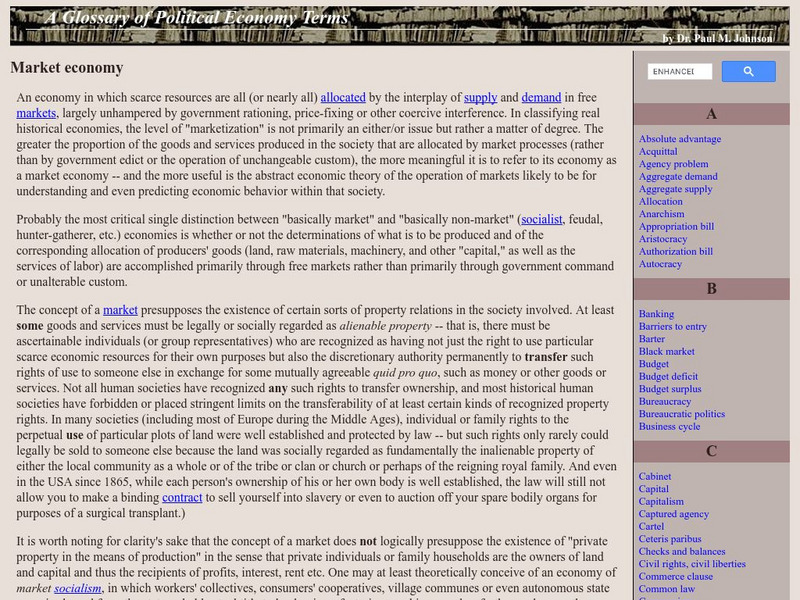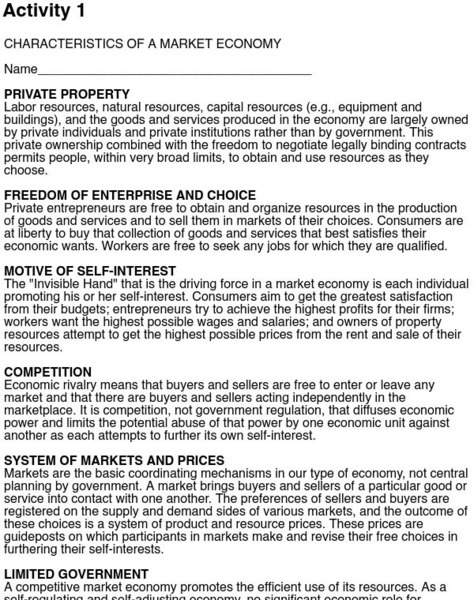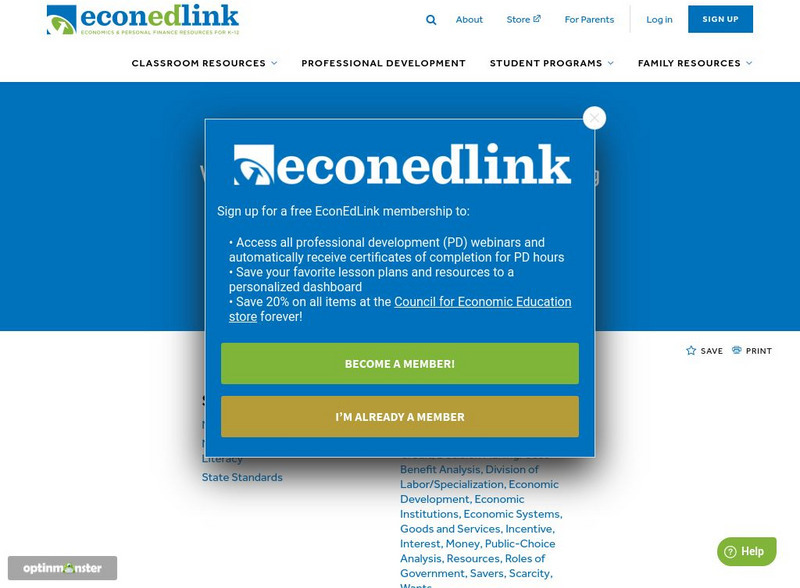Curated OER
The Free Trade Conundrum: Balancing Worker Wages and Consumer Prices Comparing the 19th and 21st Centuries
Exploring the concepts of free trade and protectionism, students compare and contrast 19th and 21st century arguments for and against the tariff.
Curated OER
Journalism: Quoting Sources
Students examine the use of sources and their quotes in news writing. They determine the reasons specific persons are used as sources and why their opinions are relevant to the article. In groups, they identify sources in articles and...
Curated OER
Money Makes the World Go 'Round
Students examine what a basic unit of currency means and how it affects world finances.
Curated OER
Where In The World?
Students review the proper terms for maps and various geographical features. In groups, they create a topographical map and label all geographic features in a given area. They present this material to the class and answer any questions...
Curated OER
Virginia In the World: The Geography of Commerce
Students examine how Virginia connects with the world through export trade. Using a map, they use symbols to depict the value of trade and the direction of the flow of goods. They complete a scavenger hunt using electronic almanacs and...
Curated OER
The Cost of Art
Fourth graders experience difficult situations where they need to choose values. This lesson provides students with a role-playing opportunity to discover alternative ways of approaching these situations.
Curated OER
Breaking News English: OPEC Urged to Increase Oil Production
In this English worksheet, students read "OPEC Urged to Increase Oil Production," and then respond to 1 essay, 47 fill in the blank, 7 short answer, 20 matching, and 8 true or false questions about the selection.
Curated OER
Money, Banks, & Financial Institutions
Students engage in a study of financial institutions that includes the banking industry. They participate in a research study using different resources. They are introduced to the concept of bartering and how it is used as a replacement...
Curated OER
The Price of European Commodities in 1803
Students peruse actual price lists of European commodities dealers Strobel and Martini of Bordeaux, France. Each student creates a sales receipt of items that they have purchased from the French Brokerage firm. Students explore how the...
Curated OER
Credit Cards: Buy Now, Pay Later
Young scholars comprehend that when they use a credit card, they are taking out a loan from the issuer of the card. They access that if a card is paid in full each month, there is no cost for using the credit card. However, if the...
Curated OER
Food Travels and Preservation
Fourth graders study food processing and distribution. In this food processing lesson, 4th graders investigate various methods of food preservation. Students study methods of food distribution.
Auburn University
Auburn University: Glossary of Political Economy Terms: Market Economy Defined
This site is a fairly complete explanation of market economy prepared by Dr. Paul Johnson of Auburn University. It also includes hyperlinks to several related topics.
Wikimedia
Wikipedia: Market Economy
Explains what a market economy is, forms of capitalism and forms of market socialism.
Georgia Department of Education
Ga Virtual Learning: Economics: Microeconomics: Doing Business in Market Economy
Economics learning module in microeconomics discusses doing business in a market economy.
University of Nebraska Omaha
Ec Ed Web: Characteristics of a Market Economy
A reference sheet to accompany an economics lesson (see link at bottom). Describes the main characteristics of a market economy.
Other
Humboldt Univ.: Political, Economic and Social Consequences of Manifest Destiny
An extensive look at the consequences of manifest destiny, with emphasis on six different topics for student discussions. These include the growth of a national market economy, the impact of drastic economic changes on American society,...
Council for Economic Education
Econ Ed Link: Work, Earnings and Economics: Using Lyddie by Katherine Paterson
In reading and discussing Lyddie, by Katherine Paterson, young scholars examine basic economic concepts and explore the growth of labor unions and the role of government in a market economy.
Texas Education Agency
Texas Gateway: How Economies Can Be Organized: An Overview of Economic Systems
By the end of this section, you will be able to contrast traditional economies, command economies, and market economies; explain gross domestic product (GDP); and assess the importance and effects of globalization.
Other
Federal Reserve Bank of Boston: The Economics of Pro Team Sports
Great interactive baseball game that combines your knowledge of economics and pro sports trivia. After completing the nine innings, you should have a better understanding of how economics is used in everyday life.
Council for Economic Education
Econ Ed Link: Traditional Economies and the Inuit
The Inuit people of northern Canada provide an example of a traditional economy. For thousands of years, Inuit parents have taught their children the survival skills needed to survive in the Arctic Circle's severe climate. Students will...
Other
South Western Learning: Econ News: The Market System Study Guide
South-Western College Publishing offers an outline written as a study guide for an exam, which gives basic definitions of different aspects of a market economy, graphs and examples, and sample study questions at the bottom.
Texas Education Agency
Texas Gateway: Chapter 4: Demand and Supply in Financial Markets
By the end of this section, you will be able to identify the demanders and suppliers in a financial market, explain how interest rates can affect supply and demand, analyze the economic effects of U.S. debt in terms of domestic financial...
PBS
Pbs News Hour: The Market Shaker
PBS NewsHour's Jim Lehrer discusses the power of Federal Reserve Chairman Alan Greenspan and his influence upon the world market with other financial experts. Includes links on the right to other Greenspan-related NewsHours.
iCivics
I Civics: Government & the Economy
Learners learn how government and the economy are related and the difference between market, command, and mixed economies.




















